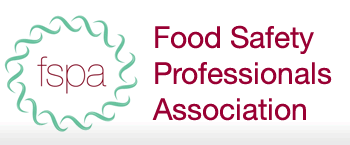Our Services
Shelf Life Testing
Food Shelf Life Testing
The ‘best-before’ date on a products packaging refers to food quality (taste, smell and appearance) as opposed to the actual safety of the product. A best-before date is usually declared on food products such as canned, dried and frozen foods.
A ‘use-by’ date is used on food products which, from a microbiological point of view, are highly perishable and are therefore likely after a short period, to constitute a danger to health. This applies to most chilled foods e.g. yogurt, milk, meat. Where a use-by date is declared on the label, this should not be ignored. Always adhere to the use-by date and discard any food which has exceeded this date.
Who determines the shelf-life of a food product? Manufacturers are responsible for determining an accurate and consistent shelf-life, as they are more familiar with the nature of, and ingredients used, in a final food. It is not up to the retailer to establish a best-before or use-by date of any food product.
Shelf Life Testing Procedure
- Identify the product(s) that require shelf life analysis and estimate the total shelf life you expect for each product.
Analysis is usually carried out at the beginning, middle and end of the expected shelf life of the product. This enables confirmation of microbiological safety throughout the shelf life of the product. - Contact us for a quote for your testing plan tailored to your individual requirements.
- Once a new batch of samples is produced these should be submitted to the lab for analysis. We test the products on the dates specified by you. Before testing, the product is stored in it's normal retail packaging and at the recommended storage temperature.
- When testing is complete a Certificate of Analysis is issued to you with the test results. Using the FSAI Guidelines for the Interpretation of Results you can determine if the product is safe to eat at each stage of its shelf life.
Additional tests
For the majority of food business operators, the most important intrinsic and extrinsic characteristics when determining shelf life are the pH, water activity, storage temperature and packaging of the food. Fitz Scientific can provide fast analysis of pH & Water Activity in food samples.
Accredited food testing laboratory
The laboratory complies with the requirements of the Campden BRI Retailer Supplementary Audit (RSA) Scheme which is required for supply of certain food products to Tesco or M&S.
Directive 2000/13/EC as amended requires a date of minimum durability to be declared (either a use-by or best-before date). This is EU legislation that applies to all Member States and all foods marketed within the EU must comply with these rules.
Our team at Fitz Scientific offer comprehensive shelf life testing for all stages of your products lifespan. We can also provide a tailored consultation designed to answer your specific questions regarding product shelf life.
Parameters include: Listeria, Salmonella, TVC, E coli and many others. For full details of INAB accredited parameters view our scope of accreditation.
For details on our comprehensive food testing and microbiological testing services contact us today on 041 9845440 or email info@fitzsci.ie.
Key Features
- INAB Accredited Analysis
- Campden BRI RSA approved for Tesco and M&S
- In House laboratory
- Nationwide Collection Service including Dublin City Centre
- Flexible service
- Quality Assured Data
- Food Safety Professionals Association Member

